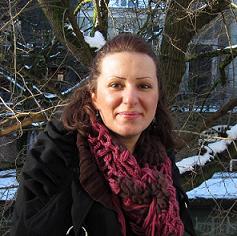Methods & Statistics
Faculty of Social Sciences
Utrecht University
Phone: +31 (0)30-253 9038 / 4438 (secretary)
E-mail: Maryam Safarkhani
Project
Heterogeneity in studies with discrete-time survival endpoints: Implications for optimal designs and statistical power analysis
The main research question in studies on event occurrence is whether and when subjects experience a particular event, such as the onset of daily smoking or the shift to adulthood. The experience of such an event and its timing can be related to explanatory variables such as gender, socio-economic status, educational level, and, in the case of an experiment, treatment condition. Such a variable’s effect should be identifiable with sufficient probability, so the power of a study on event occurrence should be controlled in the design phase.
In studies on event occurrence subjects may be monitored continuously, or be measured at intervals. Interval measurement is often used in the behavioural sciences. The sample sizes that should be used to achieve a desired power level are often large and not always feasible in social science research. It is therefore worthwhile to study to what extent covariates can improve statistical power and reduce sample size. The costs of taking such covariates is also taken into account. We will also study optimal designs where treatment and covariates are used as predictor variables in the statistical model.
Furthermore we study trials where part of the heterogeneity is unobserved. To what extent does ignoring unobserved heterogeneity result in incorrect conclusions with respect to the treatment effect and its significance? How large should sample size be if unobserved heterogeneity is taken into account?
Financed by
NWO (Vidi project granted to dr Mirjam Moerbeek)
Supervisors
– prof. dr P.G.M. Van der Heijden (Utrecht University)
– dr ir M. Moerbeek (Utrecht University)
Period
1 January 2011 – 1 January 2015

